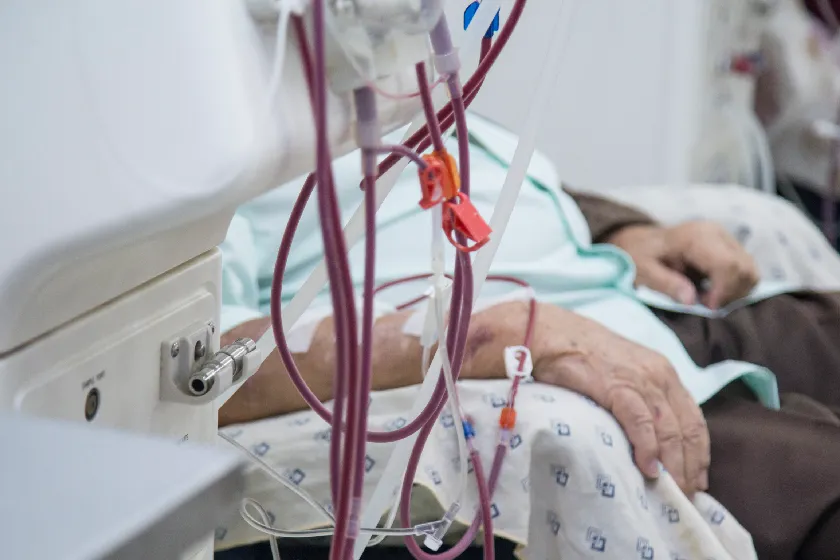
For patients undergoing dialysis, their access point is literally a lifeline. This small site, created through a surgery such as an AV fistula, basilic vein transposition, or graft, is where the blood is drawn out for cleaning and returned to the body.
While the focus during treatment is often on the dialysis machine or the schedule, the health of the dialysis access is equally important. Any problem in this area can quickly lead to complications, interruptions in treatment, and, in some cases, emergencies.
Knowing the warning signs and acting early can protect your health and ensure that your dialysis continues without unnecessary setbacks.
What is Dialysis Access?
Dialysis access is the site created surgically to connect the bloodstream to the dialysis machine. There are three main types of dialysis access: an arteriovenous fistula (AV fistula), an arteriovenous graft, and a central venous catheter.
The AV fistula, often considered the gold standard, is created by connecting an artery directly to a vein, usually in the arm. This allows the vein to become stronger and larger so it can handle repeated needle insertions. A basilic vein transposition is a special variant of AV Fistula in which the entire basilic vein ( either in the forearm or in the arm) is brought superficially near the skin surface and connected to another artery. This is done if the patient doesn’t have suitable veins for an AV fistula or if there is a blocked AV fistula.
A graft uses a synthetic tube to connect the artery and vein, and is chosen when a patient’s veins are not suitable for a fistula. Central venous catheters are temporary access options, usually placed in the neck, chest, or groin, and carry a higher risk of infection.
Specific Warning Signs
Bleeding
If the access site bleeds more than usual after a dialysis session or starts bleeding on its own between sessions, it could be a sign of damage or an underlying narrowing or clotting issue. This needs urgent medical evaluation to prevent excessive blood loss. We can do angioplasty of a narrowed fistula and prevent its blockage if detected in time.
Infection
Redness, warmth, swelling, and pus around the access site are classic signs of infection. Infections can also cause pain and tenderness. Since dialysis patients already have a higher risk of infections, any suspicion should lead to immediate consultation with a dialysis access specialist.
Fever
A persistent fever in a dialysis patient should never be ignored. It could indicate a bloodstream infection that may have started at the access site. Such infections can spread quickly and become life-threatening.
Swelling and Cold Extremities
Swelling of the arm or hand near the fistula or graft, or a sudden cold sensation in the fingers, could mean that blood flow is restricted. This may occur due to narrowing or clotting in the access, which needs prompt treatment.
Changes in Thrill or Bruit
A healthy AV fistula or graft has a vibration known as a “thrill” and a sound called a “bruit” that can be felt or heard by touching or listening to the access. If these sensations become weaker or disappear, it may signal blockage or malfunction.
Difficulty with Needle Placement
When the dialysis team starts finding it hard to insert the needle into the access site, it could mean that the vessel is narrowing or scar tissue is building up. This is a red flag that should be addressed early.
Pain
While mild discomfort is common during needle insertion, ongoing pain or pain at rest is not normal. Persistent or increasing pain needs investigation, as it could be linked to infection, clotting, or other complications.
Why are these signs important?
Early Detection is Crucial
Spotting these signs early allows doctors to intervene before the access fails completely. This reduces the risk of emergency procedures and ensures that the patient continues to receive uninterrupted dialysis.
Infections Can Be Life-Threatening
An untreated infection can quickly progress to sepsis, which is a medical emergency. Patients with weakened immunity, like those on dialysis, are at higher risk, making timely action vital.
Access Failure Can Disrupt Treatment
If the access stops working, dialysis sessions will be delayed or interrupted. This can cause harmful build-up of waste products and fluids in the body, leading to symptoms such as breathlessness, swelling, and fatigue.
Choosing the Right Time and the Right Doctor
While weather and comfort can influence your timing, choosing the right doctor is the most important decision. A good vascular surgeon will evaluate your symptoms, investigate the root cause with the right tests, and guide you on whether to treat now or wait.
Avoid temporary solutions like creams or over-the-counter painkillers. These only mask symptoms and do not address the vein damage. A specialist will not only recommend the best time but also the best treatment, based on your unique condition.
Conclusion
Your dialysis access is more than just a surgical site – it is the link that keeps your treatment going. Any unusual changes, such as bleeding, swelling, pain, fever, or changes in the thrill, should be reported immediately.
Quick action can prevent complications, save your access, and protect your overall health. If you notice any of these warning signs, it is important to consult a vascular surgeon experienced in dialysis access surgery.
Frequently Asked Questions
Dialysis is usually needed when kidney function falls to 10–15 percent of normal. Signs include swelling in the legs and face, persistent fatigue, nausea, breathlessness, and abnormal blood test results showing high creatinine or urea levels.
The most common access is an arteriovenous fistula, which is preferred because it lasts longer and has a lower risk of infection compared to other access types.
Yes, surgery is required to create an AV fistula or graft. These procedures are performed by vascular surgeons in a dialysis access surgery center.
Dialysis may be stopped if a patient receives a successful kidney transplant, if kidney function improves significantly, or in certain end-of-life care decisions. Stopping dialysis without medical guidance can be dangerous.

Dr. Sumit Kapadia
MBBS, MS, MRCS, DNB-Fellow



